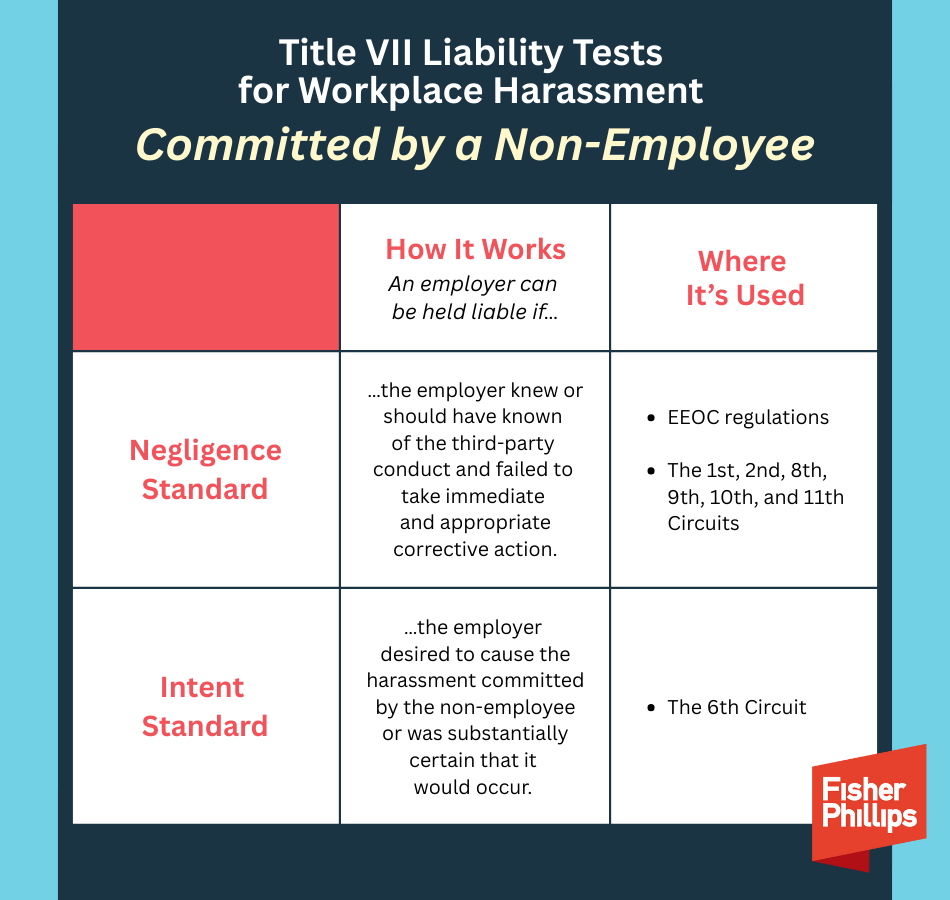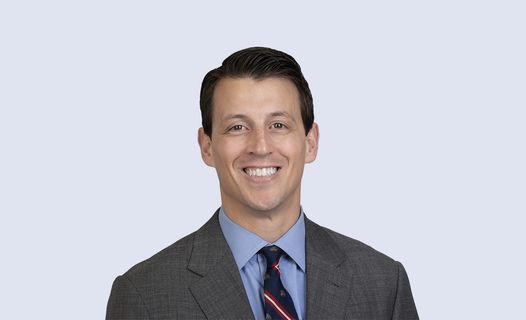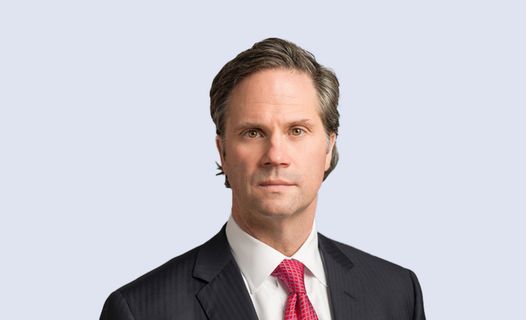Welcome to this edition of FP Snapshot for Manufacturers, where we take a quick snapshot look at a recent significant workplace law development with an emphasis on how it impacts employers in the manufacturing sector. This edition is devoted to a recent federal appeals court ruling that sets a new standard for determining employer liability for workplace harassment committed by a non-employee, marking a clear break from most other courts as well as the Equal Employment Opportunity Commission (EEOC).
Snapshot Look at Bivens v. Zep, Inc.
In an August 8 decision, the 6th US Circuit Court of Appeals ruled that Zep, Inc., a manufacturer and distributor of cleaning products for retail and commercial businesses, was not liable for workplace harassment committed by a non-employee.
- How It Started. Dorothy Bivens worked for Zep as a sales representative for a brief period in 2021. A few months into the role, she told her supervisor that Zep’s client, a motel manager, had sexually harassed her when she met him inside his office, and her supervisor reassigned that client to a different sales team. Around the same time, Zep’s president eliminated 23 sales roles, including Bivens’, as part of a workforce reduction.
- The Lawsuit. Bivens sued Zep in a Michigan federal court under Title VII of the Civil Rights Act of 1964 (as well as Michigan’s state law equivalent), claiming that the company created a hostile work environment based on the harassment incident at the motel manager’s office and terminated her in retaliation for reporting it. The district court ruled in favor of Zep on all claims, and the 6th Circuit affirmed.
- 6th Circuit’s New Standard. The ruling focused on whether an intent-based or negligence standard of liability applies in cases involving non-employee harassment of an employee. The appeals court held that employer liability attaches in such cases only when the employer intended for the harassment to occur – and rejected the negligence theory of liability that is applied by most other circuit courts and in EEOC regulations.
|
Further FP Reading. For our in-depth coverage on Bivens v. Zep, Inc., click here. |
Impact on Manufacturers
While Title VII claims based on non-employee conduct are not common overall, they are more common and a greater risk for certain industries, such as manufacturing, where operations involve frequent interactions with non-employees (such as customers, clients, and vendors). The Bivens decision, which is binding only on courts within the 6th Circuit, makes it harder for plaintiffs to succeed on these types of claims.
- Good News for Manufacturers in the 6th Circuit. The new intent-based standard is a major win for manufacturers in Kentucky, Michigan, Ohio, and Tennessee, which each rank among the top 20 states with the highest rates of manufacturing employment (Ohio and Michigan land in the top four), according to the latest data available (July 2025) from the US Bureau of Labor Statistics.
- Good Reminder for All Manufacturers. According to the EEOC and most federal courts outside of the 6th Circuit, an employer may be held liable under Title VII for a non-employee’s conduct so long as it knew or should have known of the conduct and failed to take immediate and appropriate corrective action. And even though the 6th Circuit just significantly limited Title VII liability based on third-party conduct, it did not eliminate it altogether.
- The Bottom Line. Manufacturers across the country should continue to take third-party harassment seriously. The intent standard of liability is not the norm nationwide and is at odds with EEOC rules, so even employers in the 6th Circuit should be cautious (especially if you operate in multiple states where different liability standards apply). You must also be aware of any additional employee protections that may apply at the state or local level.
|
Will Other Circuits Adopt the Intent Standard? Stay tuned to see how other circuit courts address this issue going forward. Federal judges now have much more power to toss out agency’s positions on the law due to the Supreme Court’s landmark decision last year in Loper Bright – which is what the Bivens court relied on in setting aside the EEOC’s negligence standard and creating a new one based on its own interpretation of Title VII. |
3 Practical Steps for Manufacturers
Consider taking these three steps to manage your risk of Title VII liability for a non-employee’s conduct:
- Make sure your policies address third-party harassment. Consider updating your workplace policies to clearly outline the types of conduct that will not be tolerated from clients, vendors, and other non-employees, and what steps your company will take if such conduct occurs.
- Train your employees. Managers and supervisors must understand how to recognize third-party harassment and how to promptly address it. Employees should know how to report incidents of harassing conduct from non-employees.
- Take complaints seriously and document everything. Consider designating an experienced person or team to conduct investigations. Make sure to document each step of the process, including any corrective action taken by the company.
Conclusion
If you have any questions about your Title VII liability exposure related to third-party conduct, contact your Fisher Phillips attorney, the authors of this Insight, or any attorney on our Manufacturing Industry Team. Make sure to sign up for Fisher Phillips Insights to stay up to speed on the latest developments.




